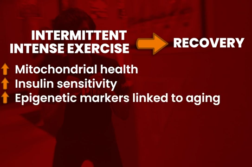ST. LOUIS- Mo. (Ivanhoe Newswire) — If a child has a toothache or the flu, it’s easy for most adults to explain what happens during a trip to the dentist or doctor, but when it comes to mental health, many parents may not know where to begin, or how to calm a child’s fears and they may have plenty of fears of their own. One expert is working to destigmatize mental health issues by bringing them front and center.
For nine-year old Kennedy Reese, soccer is a great way to burn off some energy.
“It’s not about winning, it’s about having fun,” Kennedy told Ivanhoe.
Tough to tell on the field but Kennedy has attention deficit hyperactivity disorder, ADHD.
She said, “I don’t pay attention. I move a lot.”
Recently, Vincent Reese, Kennedy’s dad, has seen a world of difference in his daughter, but starting from the time she was a toddler, Kennedy had developmental delays.
Vincent said, “She wasn’t even articulating simple words like mom, dad, bottle, nothing.”
Child psychiatrist at Washington University School of Medicine in St. Louis, Mini Tandon, DO, is an expert in ADHD and other childhood mental health disorders. With as many as eight percent of all school-aged kids showing signs of ADHD, Doctor Tandon is working to take the fear and stigma out of mental health checkups. Tandon starts with the office … no white coats allowed.
Tandon said, “We want to be able to get inside your thoughts and moods and feelings. By removing the white coat we are distinguishing ourselves and making kids more comfortable.”
Doctor Tandon tells parents to explain a mental health visit the same way as they would a pediatrician’s checkup for a cold or flu. These visits help you feel better and follow up visits keep you well. But when she was unable to find a book to recommend to her patients she tapped one out herself.
“They have many types of children’s books, but i feel like there’s a shortage of children’s books addressing mental health,” she said.
Her book is called Doctor Mini Mental Health Meets Willie Wannaknow. It addresses ADHD and tics. For the Reese family, it was one way of helping Kennedy understand her treatment.
Vincent said, “For some individuals it’s just something normal they have to overcome like any other illness.”
Doctor Tandon self-published the book and has begun writing another to complete a series focusing on early childhood mental health topics. The book is available at www.drminimentalhealth.com for $17.99.
Contributors to this news report include: Jessica Sanchez, Supervising Producer; Cyndy McGrath, Field Producer; Bob Walko, Editor; Brent Sucher, Videographer.
DOCTOR MINI MENTAL HEALTH
REPORT #5021
“They have many types of children’s books, but I feel like there’s a
shortage of children’s books addressing mental health.”
Mini Tandon, DO Child Psychiatrist
BACKGROUND: One in seven children aged two to eight years has a mental, behavioral, or developmental disorder. Nearly 7% of children are diagnosed with Attention Deficit Hyperactivity Disorder (ADHD). Symptoms of mental disorders change over time as a child grows and may include difficulties with how a child plays, learns, speaks, and acts or how the child handles their emotions. Symptoms may start at any age, starting in early childhood. Without early diagnosis and treatment, children with mental disorders can have problems at home and in school and may develop problems with low self-esteem. While researchers believe genetics play a role (20% to 50% of children and adolescents with depression have a history of depression in their family), other risk factors include psychosocial influences, like abusive guardians or exposure to violence, and stressful life events, like the death of a parent or divorce. (Source: http://www.kidsmentalhealth.org/, http://www.cdc.gov/childrensmentalhealth/basics.html)
DOCTOR MINI MENTAL HEALTH: To help children understand mental illness, and to destigmatize these diseases, psychiatrist Mini Tandon, DO, wrote a children’s book. In the book, Willie Wannaknow is a character who experiences tics and ADHD and visits Dr. Mini Mental Health to help. The book includes a section to help guide parents on how to explain to their child what happens during a checkup with the psychiatrist. It is the first of a soon-to-be series, available at http://www.drminimentalhealth.com/ in soft cover for $17.99, or you can buy the e-book version from Barnes and Noble or Amazon for $6.99.
TIPS FOR PARENTS: There are many challenges to raising a child with a mental health disorder. Here are some things parents can do to help their child:
- Stay healthy and positive yourself: When you are healthy, calm and focused you are more likely to connect with your child.
- Establish a structure and schedule, and stick to it: Children are more likely to succeed in completing tasks when the tasks occur in predictable patterns and predictable places.
- Set clear expectations and rules: Children need consistent rules that they can understand and follow, and respond well to organized systems of rewards and consequences.
- Teach your child to make friends: Children with mental disorders or illness may have difficulty with social interactions and social cues. Make time for your child to play with other children and reward good behaviors often.
If you are concerned about your child’s mental health or development, it is best to talk to a health professional.
SMART WOMAN CONTACT:
Deb Parker
Media Relations, Washington University in St. Louis,



